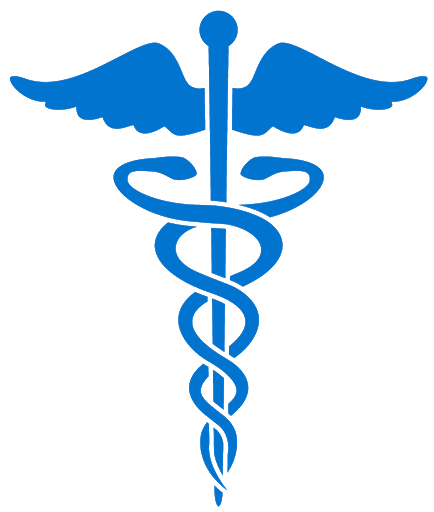1.
CVA : Cerebrovascular Accident
Medical
What is the Full form of CVA?
CVA stands for “Cerebrovascular Accident”
Cerebrovascular accident (CVA) is the medical term for a stroke. A stroke is when blood flow to a part of your brain is stopped either by a blockage or the rupture of a blood vessel. There are important signs of a stroke that you should be aware of and watch out for.
Seek medical attention immediately if you think that you or someone around you might be having a stroke. The more quickly you receive treatment, the better the prognosis, as a stroke left untreated for too long can result in permanent brain damage.
Symptoms of Cerebrovascular Accident
Stroke symptoms include:
- difficulty walking
- dizziness
- loss of balance and coordination
- difficulty speaking or understanding others who are speaking
- numbness or paralysis in the face, leg, or arm, most likely on just one side of the body
- blurred or darkened vision
- a sudden headache, especially when accompanied by nausea, vomiting, or dizziness
Prevention
Here are a few ways to reduce your risk:
- Maintain normal blood pressure.
- Limit saturated fat and cholesterol intake.
- Refrain from smoking, and drink alcohol in moderation.
- Control diabetes.
- Maintain a healthy weight.
- Get regular exercise.
- Eat a diet rich in vegetables and fruits.
Suggestions:
| Acronym | Full Form |
|---|---|
| COVID-19 | COrona VIrus Disease 2019 |
| ABG | Arterial Blood Gas |
| ACS | American Chemical Society |
| ADHD | Attention Deficit Hyperactivity Disorder |
| AIDS | Acquired Immune Deficiency Syndrome |
| ALS | Amyotrophic Lateral Sclerosis |
| BAMS | Bachelor of Ayurvedic Medicine and Surgery |
| BCG | Bacillus Calmette Guerin |
| BDS | Bachelor of Dental Surgery |
| BMD | Bone Mineral Density |
| BMI | Body Mass Index |
| BMR | Basal Metabolic Rate |
| BMT | Bone Marrow Transplant |
| WBC | White Blood Cell |
| CABG | Coronary Artery Bypass Graft |
| CBC | Complete Blood Count |
| UTI | Urinary Tract Infection |
| TLC | Total Lung Capacity |
| TT | Tetanus Toxoid |
| CHF | Congestive Heart Failure |
| CMO | Chief Medical Officer |
| COPD | Chronic Obstructive Pulmonary Disease |
| CPR | Cardio-Pulmonary Resuscitation |
| DNA | Deoxyribonucleic Acid |
| EBV | Epstein - Barr virus |
| ECT | Electroconvulsive Therapy |
| ENT | Ear Nose Throat |
| FHR | Fetal Heart Rate |
| GFR | Glomerular Filtration Rate |
| GTT | Glucose Tolerance Test |
| HIV | Human Immunodeficiency Virus |
| STD | Sexually Transmitted Diseases |
| ICU | Intensive Care Unit |
| IVF | IN Vitro Fertilization |
| MBBS | Bachelor of Medicine, Bachelor of Surgery |
| MC | Menstrual Cycle |
| MMR | Measles Mumps and Rubella |
| MRI | Magnetic Resonance Imaging |
| OCD | Obsessive-Compulsive Disorder |
| OPD | Outpatient Department |
| OSA | Obstructive Sleep Apnea |
| PID | Pelvic Inflammatory Disease |
| PKD | Polycystic Kidney Disease |
| PMS | Premenstrual Syndrome |
| PTSD | Post-Traumatic Stress Disorder |
| RBC | Red Blood Cell |
| RHD | Rheumatic Heart Disease |
| RNA | Ribonucleic Acid |
| ARDS | Acute Respiratory Distress Syndrome |
| SGPT | Serum Glutamic Pyruvic Transaminase |
| AML | Acute Myeloid Leukemia |
| BUN | Blood Urea Nitrogen |
| BWC | Biological Weapons Convention |
| TNT | Trinitrotoluene |
| EEG | Electroencephalogram |
| SGOT | Serum Glutonic Oxaloacetic Transaminase |
| NTG | Nitroglycerin |
| ECG | Electrocardiography |
| ACL | Anterior Cruciate Ligament |
| ARF | Acute Kidney Failure |
| ARDS | Acute Respiratory Distress Syndrome |
| BP | Blood Pressure |
| BPD | |
| CABG | Coronary Artery Bypass Grafting |
| CT | Chemotherapy |
| DTR | Deep Tendon Reflexes |
| Plt | Platelets |
| DM | Diabetes Mellitus |
| FX | Fracture |
| ICU | Intensive Care Unit |
| IBD | Inflammatory Bowel Disease |
| ITU | Intensive Therapy Unit |
| JT | Joint |
| LBP | Low Back Pain |
| MCL | Medial Collateral Ligament |
| M/H | Medical History |
| N/V | Nausea Or Vomiting |
| ORIF | Open Reduction And Internal Fixation |
| PT | Physical Therapy |
| PUD | Peptic Ulcer Disease |
| PTH | Parathyroid Hormone |
| RA | Rheumatoid Arthritis |
| SOB | Shortness Of Breath |
| TAH | Total Abdominal Hysterectomy |
| THR | Total Hip Replacement |
| URI | Upper Respiratory Infection |
| XRT | Radiotherapy |















